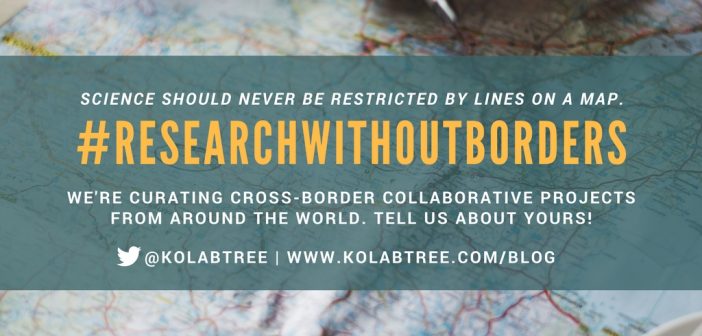We witnessed a somewhat surprising collaboration recently between a social science researcher in the USA and an astrophysicist based in London. Seems unlikely, right? And what did they work together on? Data analytics! The researcher (from Stony Brook University, New York) was studying the effect of the frequency of gym visits on academic performance. His team was unable to obtain any meaningful pattern from the dataset of close to 800,000 records. He posted his project on Kolabtree, and an astrophysicist from Imperial College London (who is used to handling big datasets, as one would imagine) helped him take the project to completion.
This is just one of many examples of the many cross-border collaborations that are happening around the world. As science becomes increasingly interdisciplinary, there are multiple overlaps in the skills and knowledge required for different fields of studies. According to a UNESCO science report, “one in four scientific articles produced around the world were cosigned by a foreign collaborator in 2014, compared to one in five a decade earlier.” Countries all over the world are joining hands to help fuel research and innovation, in a political climate that is becoming alarmingly anti-science. Under Horizon 2020, the EU’s research and innovation programme, academia in the EU and the USA will be able to work together closely. Science Europe and Elsevier conducted a study which examined cross-border collaborations and found that “researchers in the US are more likely to collaborate with researchers from outside the US than researchers in Europe are likely to collaborate with researchers outside Europe.” This also means that there is a huge potential for European researchers to expand their network outside the region.
We’ve seen cross-border partnerships in all realms of science and tech – take NASA-ISRO (NISAR), Novartis-Google (smart contact lenses), GE-Microsoft (PaaS). Five tech giants – Google, Amazon, IBM, Facebook and Microsoft – have recently formed the Partnership on Artificial Intelligence to Benefit People and Society. In healthcare, collaborative platforms help deliver quality medical services around the world – John Hopkins works with institutions in Canada, Turkey, UAE, Singapore and Brazil, just to name a few. Networks like Catapult UK connect businesses, engineers and scientists who can work together to transform ideas into innovative products and services, driving economic growth.
It’s no secret that collaboration is definitely the way forward for better research, better innovation. We believe that science and research can never be restricted by lines on a map. As a platform that encourages cross-border collaboration, we’ve started the #researchwithoutborders initiative, that aims to showcase collaborative projects in science, tech, engineering and medicine from around the world. If you’re an organization, a researcher, a university or an individual collaborating across borders on an exciting research project, we’d love to hear from you!
TELL US ABOUT YOUR COLLABORATION!







